Examples
Introduction
Here are some of the example simulations generated using CubbyFlow framework. Corresponding example codes can be found under <root_dir>/Examples. All images are rendered using Mitsuba renderer
Dam-breaking simulation with PCISPH solver
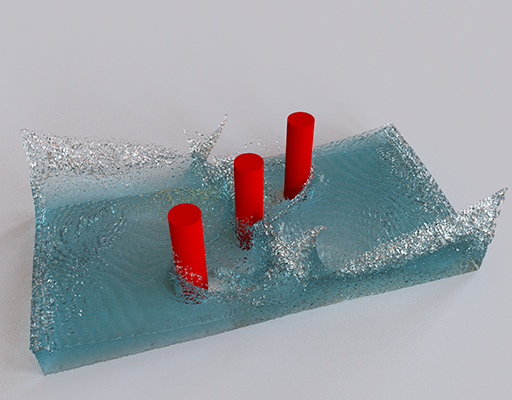
Two columns of water splashing into each other, interacting with colliders. Background grid with 300 x 200 x 150 resolution and 6,790,478 particles are used.
Dam-breaking simulation with Level Set solver
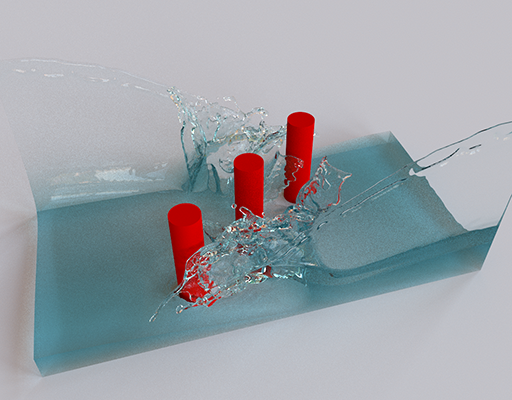
Using the same simulation configuration from the rising smoke example above, but with the level set solver. The generated fluid motion is less viscous.
Dam-breaking simulation with FLIP solver
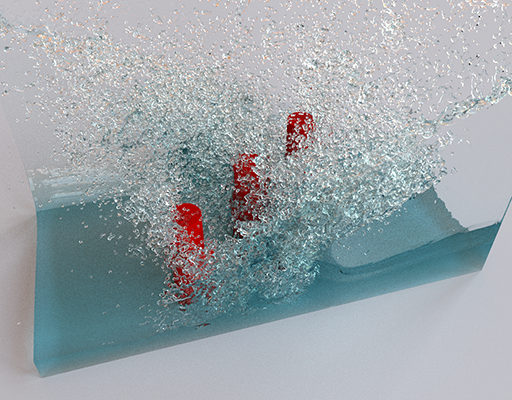
Two columns of water splashing into each other, interacting with colliders. Background grid with 300 x 200 x 150 resolution and 6,892,139 particles are used.
Dam-breaking simulation with PIC solver
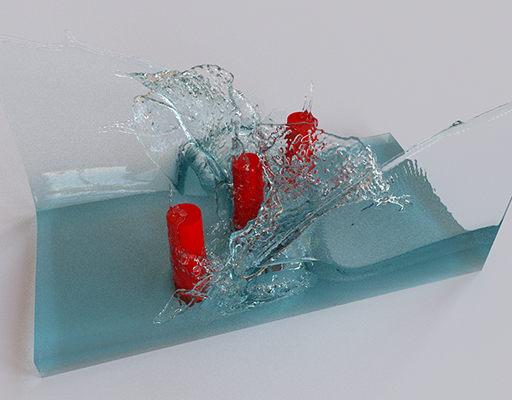
Using the same simulation configuration from the dam-breaking example above, but with the PIC solver. The generated fluid motion is more viscous.
Dam-breaking simulation with APIC solver
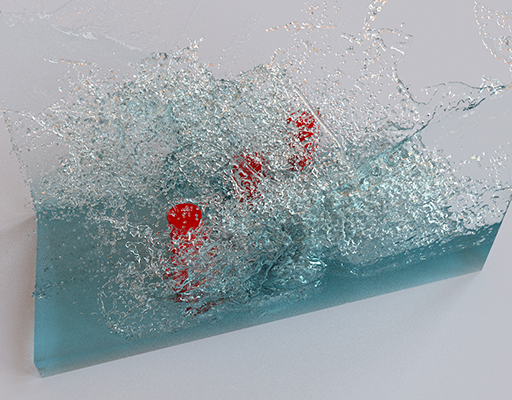
Using the same simulation configuration from the dam-breaking example above, but with the APIC solver. The generated fluid motion is less viscous.
High and low viscosity simulations with level set solver
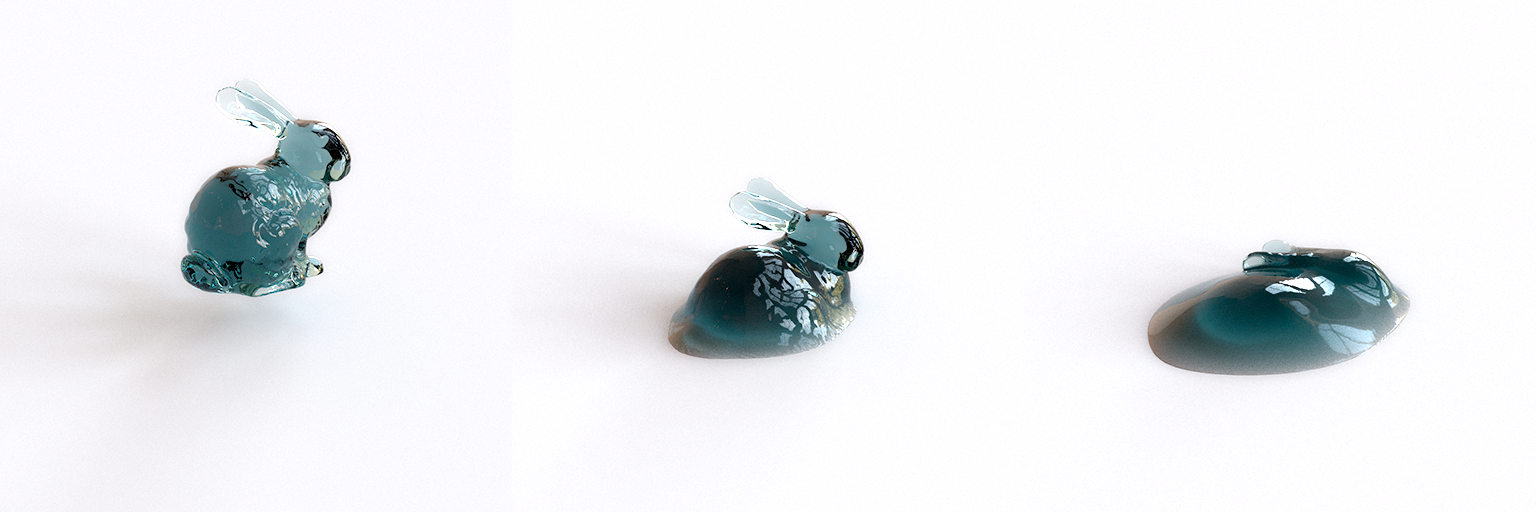
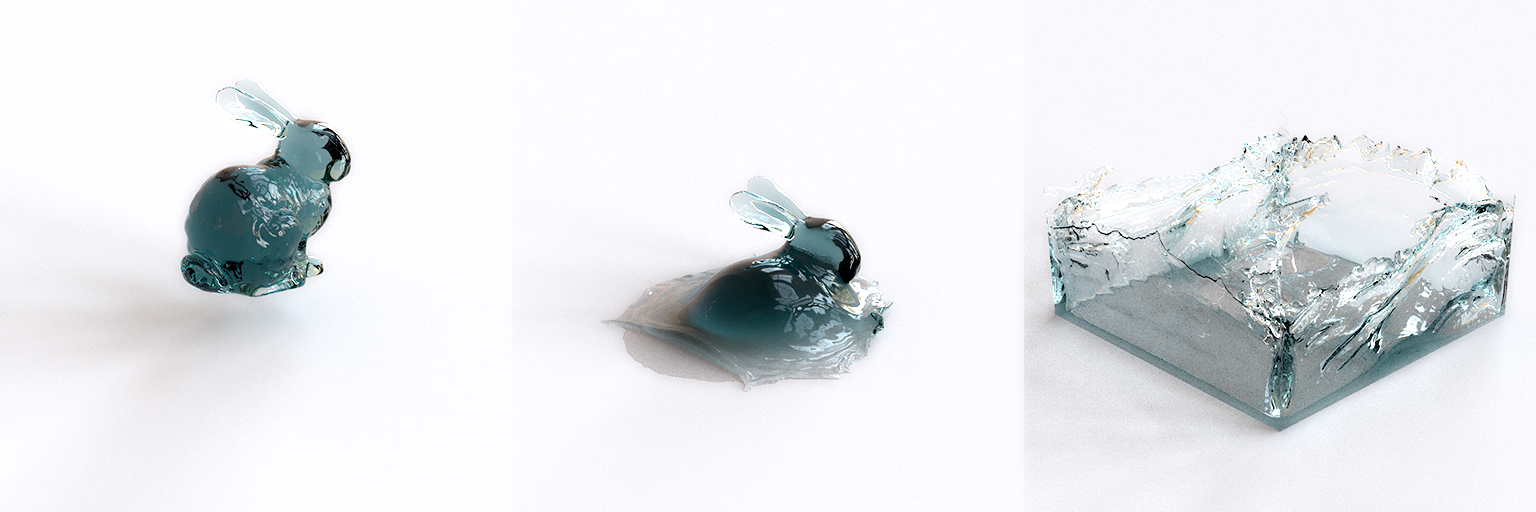
Two starnford bunnies are dropped with different viscosity. The top row is simulated with higher viscosity, whereas the bottom row is simulated with zero viscosity. Grid with 2003 resolution is used. Cubic spline semi-Lagrangian method is applied for the advection and ENO method is used for level set reinitialization.
Smoke simulation using monotonic linear semi-Lagrangian
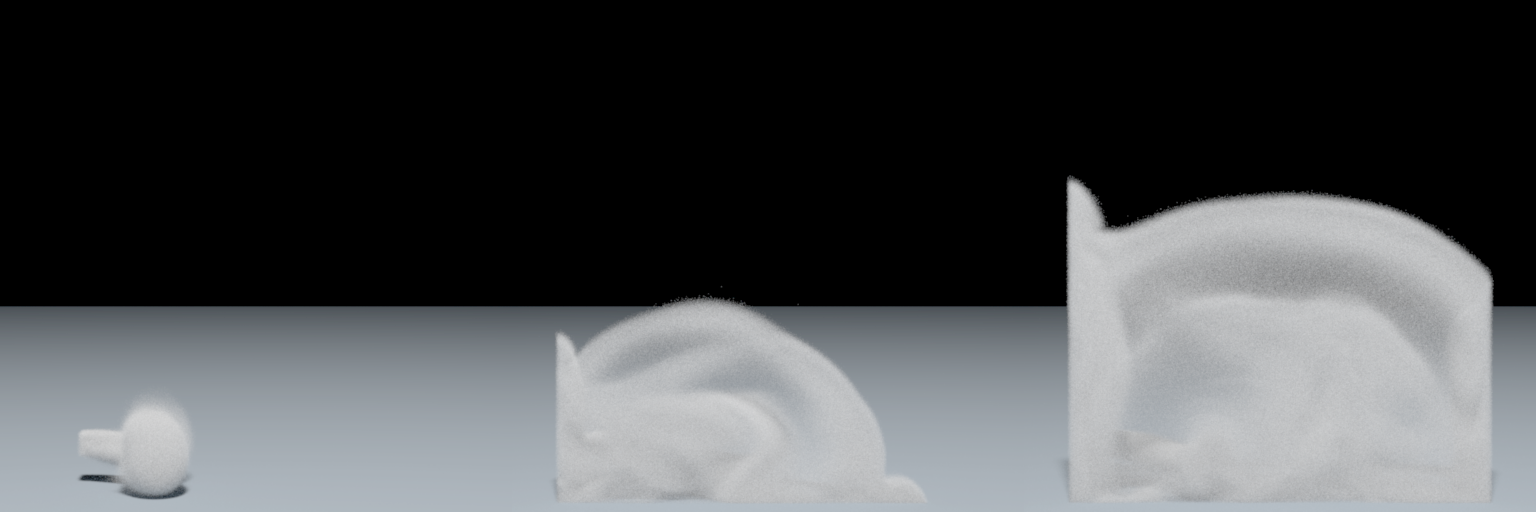
Hot rising smoke is simulated using stable fluids framework. The buoyancy force and monotonic linear semi-Lagrangian advection creates interesting swirls. Grid with 200 x 240 x 100 resolution is used.
Smoke simulation using monotonic cubic semi-Lagrangian
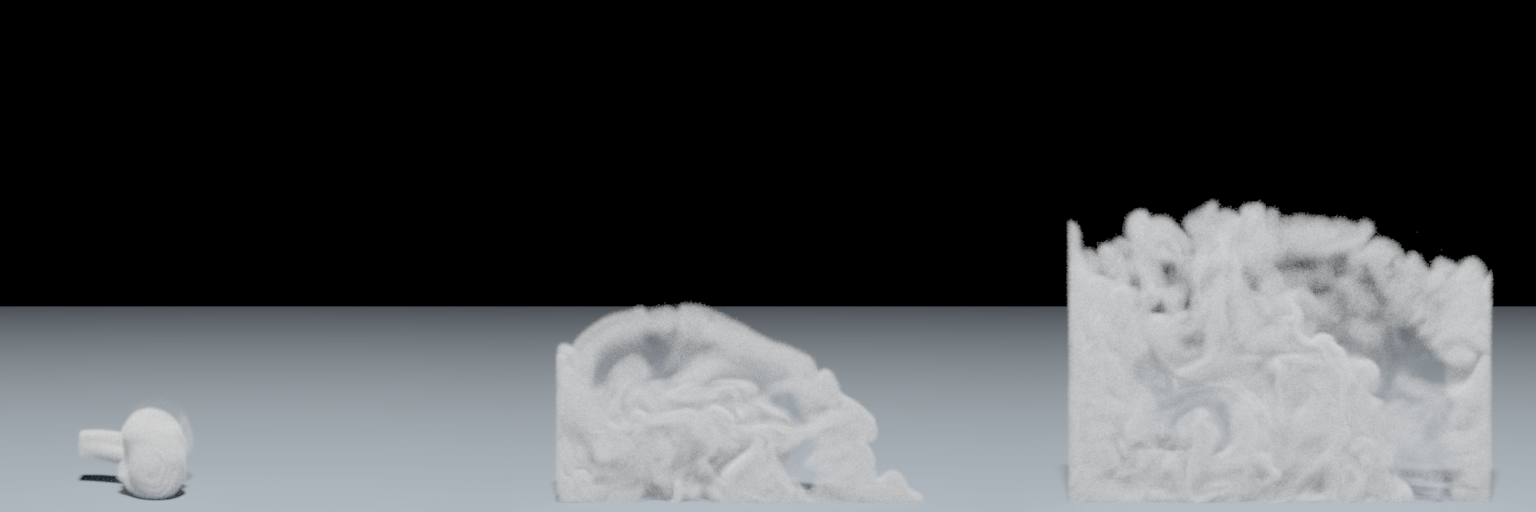
Using the same simulation configuration from the rising smoke example above, but with the cubic semi-Lagrangian advection solver. More swirls are observed.